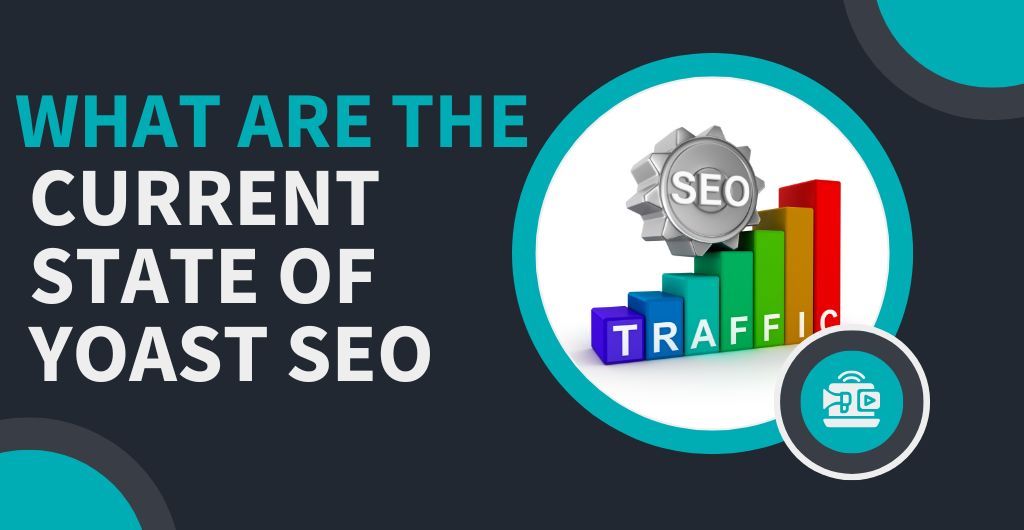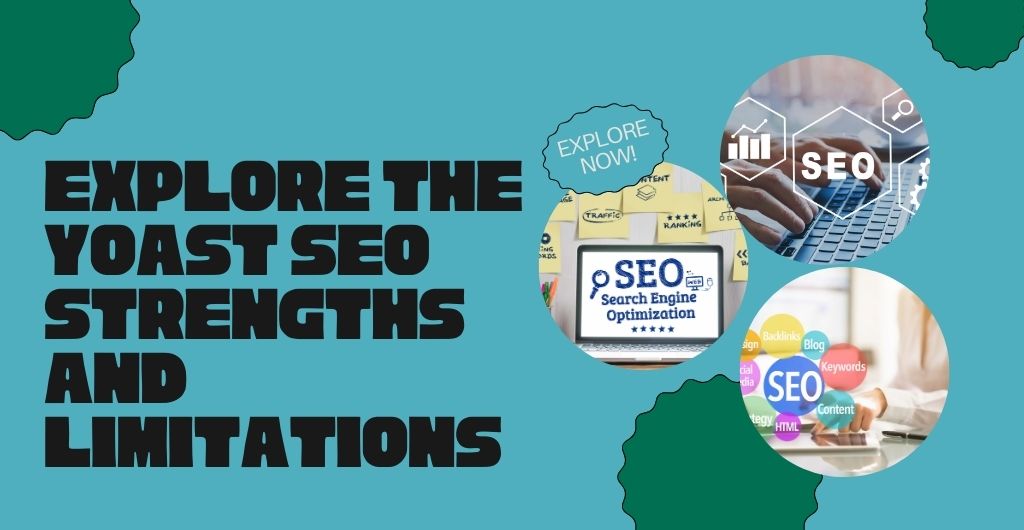Is SEO Yoast Outdated in 2025? Discover the Future of SEO Tools
The Shifting Sands of Search – Is Your SEO Toolkit Ready?
The digital landscape is in constant flux, with search engine algorithms evolving and user behavior shifting. In this dynamic environment, SEO tools must adapt to remain effective. Yoast SEO, a long-standing favorite for WordPress users, has been a reliable companion for many years, helping websites optimize their content for search engines. But in 2025, with the rise of AI and other advancements, is Yoast SEO still a relevant tool, or has it become outdated?
This post delves into the current state of Yoast, its evolution, its strengths and weaknesses, and how it stacks up against modern alternatives in the ever-changing world of SEO.
The Evolution of SEO Tools: From Keyword Stuffing to AI-Powered Insights
SEO tools have dramatically transformed over the years, evolving from basic keyword counters to highly advanced AI-driven platforms. This journey reflects how the digital landscape has matured, demanding more nuanced and data-driven approaches to optimization.
Early Days: Simplicity at Its Core
- Keyword Density Checkers: Early tools focused primarily on ensuring your content had enough mentions of a target keyword.
- Meta Tag Editors: Basic SEO revolved around editing meta titles and descriptions to include keywords.
- Manual Audits: Site owners relied heavily on manual checks to identify gaps, making SEO labor-intensive and error-prone.
The Modern Era: AI Revolutionizing SEO
Today, SEO tools analyze a much broader range of factors, offering capabilities that weren’t even imagined a decade ago. Some key advancements include:
- Real-Time Data Analysis:
- Modern SEO tools provide live updates on website performance metrics like traffic, bounce rate, and rankings.
- This allows marketers to pivot strategies quickly and address issues proactively.
- AI-Driven Insights:
- Machine learning models now identify patterns, offering tailored recommendations for optimizing content.
- For example, AI can analyze a competitor’s strategy and suggest content gaps you can fill.
- Competitor Analysis:
- Tools like Ahrefs and SEMrush allow you to benchmark your website against competitors.
- This includes tracking their backlinks, keyword rankings, and content performance.
- Comprehensive SEO Audits:
- Advanced tools can identify technical issues like crawl errors, slow loading times, and broken links.
- They also provide actionable steps to resolve these problems, ensuring better search engine visibility.

Current State of Yoast SEO: A Familiar Friend in a Changing World
Yoast SEO remains a favorite for WordPress users, offering a rich set of features. Here’s a deeper look at its strengths and how they cater to users of varying expertise:
Core Features That Set Yoast Apart
- On-Page SEO Optimization: Offers clear prompts for optimizing titles, meta descriptions, and headers, ensuring your content aligns with target keywords.
- Keyword Analysis: While basic compared to newer tools, it’s a good starting point for beginners learning keyword strategies.
- Readability Analysis: Evaluates text using metrics like sentence length and passive voice, making content more engaging for readers and search engines.
- Schema Markup Support: Automates structured data implementation, enhancing your content’s visibility in rich snippets.
- XML Sitemaps: Helps search engines crawl and index your site effectively, crucial for websites with frequent updates.
- Social Media Integration: Allows customization of how your posts appear when shared on platforms like Facebook and Twitter.
Feedback from Users
Many users commend Yoast for its simplicity, particularly its:
- Traffic Light System: Offers visual cues to guide optimization efforts.
- User-Friendly Dashboard: Makes it easy for non-technical users to navigate. However, some users managing large or complex websites report performance slowdowns, indicating the need for better scalability.
| Yoast SEO: Core Features | |
|---|---|
| Key Features | On-page SEO, keyword analysis, readability checks, schema markup, XML sitemaps, and social media integration. |
| User Feedback | |
| Pros | Simple to use with traffic light system and user-friendly dashboard. |
| Cons | Performance issues for large, complex websites. |
Emerging Trends in SEO: The Rise of AI and Voice Search
As SEO evolves, two major trends are reshaping the landscape: the integration of AI and the rise of voice search.
AI and Machine Learning in SEO
AI and machine learning have become foundational to modern SEO strategies. Here’s how they are driving change:
- Improved Search Engine Understanding of Intent:
- AI, through Natural Language Processing (NLP), helps search engines like Google understand context better.
- For instance, a query like “best places to visit” varies depending on location, season, and user preferences. AI ensures results are tailored to individual needs.
- Smarter Content Recommendations:
- Tools like Clearscope and MarketMuse analyze your content and suggest optimizations based on top-performing pages for your target keywords.
- They highlight missing subtopics, readability issues, and opportunities for better internal linking.
- Automation of Routine Tasks:
- AI-powered platforms automate tasks like keyword clustering, SERP analysis, and even content brief creation.
- This saves time and ensures consistency in implementation across large websites.
Voice Search Optimization: The Future is Conversational
Voice search is rapidly gaining traction, with an estimated 50% of searches projected to be voice-based in the coming years. Optimizing for voice search involves understanding how people interact with devices like Alexa, Siri, and Google Home.
- Using Natural Language:
- Voice search queries tend to be conversational. For example:
- Typed Search: “weather NYC”
- Voice Search: “How’s the weather looking in New York City today?”
- Adopting a natural tone in your content aligns better with how people speak to voice assistants.
- Voice search queries tend to be conversational. For example:
- Focusing on Long-Tail Keywords:
- Voice queries are often longer and more specific, such as “best Italian restaurants near me open now.”
- Tools like AnswerThePublic can help identify these conversational keyword trends.
- Answering Common Questions:
- Voice search often revolves around questions (e.g., “How do I fix a flat tire?”). Position your content as an answer:
- Use FAQ sections on your website.
- Adopt the People Also Ask format to address related queries.
- Featured snippets are prime real estate for voice search, as assistants often pull directly from them.
- Voice search often revolves around questions (e.g., “How do I fix a flat tire?”). Position your content as an answer:
How to Implement Voice Search Optimization
- Target Position Zero: Aim for featured snippets by providing concise, clear answers in your content.
- Local SEO: Ensure your business details are updated on Google My Business and other local directories.
- Mobile Optimization: Voice searches are primarily conducted on mobile devices, making mobile-friendly designs a must.
| Emerging SEO Trends: AI & Voice Search | |
|---|---|
| AI in SEO | AI helps understand intent, optimize content, and automate SEO tasks. |
| Voice Search | Focus on conversational queries, long-tail keywords, and featured snippets. |
| Implementation Tips | |
| Optimization | Target Position Zero, update local info, and ensure mobile-friendliness. |
Engaging Readers While Addressing Trends
By embracing these advancements, your SEO strategy can not only keep pace with the competition but also create engaging and highly visible content. Whether it’s leveraging AI to optimize your site or adopting voice search tactics, staying ahead of the curve ensures success in the evolving digital world.
Yoast SEO vs. Modern Alternatives: A Comparative Look
While Yoast SEO remains a solid choice for basic SEO, newer tools are redefining the landscape with more advanced capabilities. Here’s a detailed comparison of the features offered by Yoast SEO and modern SEO tools:
Why This Matters
- Keyword Analysis:
- Yoast SEO: Offers fundamental tools to help users identify if their focus keyword is used adequately.
- Modern Tools: Go beyond density checks, analyzing search intent, and recommending keywords based on competitor strategies and semantic relevance.
- Backlink Analysis:
- Yoast SEO: Does not provide comprehensive backlink tools.
- Modern Tools: Platforms like Ahrefs and SEMrush excel at tracking backlinks, identifying toxic links, and uncovering competitor backlink opportunities, which are crucial for off-page SEO.
- Content Analysis:
- Yoast SEO: Focuses on readability metrics and basic keyword usage.
- Modern Tools: Use NLP to evaluate content quality, identify gaps, and suggest subtopics to improve comprehensiveness.
- AI Suggestions:
- Yoast SEO: Lacks AI-driven functionalities.
- Modern Tools: AI assists in various tasks, including predictive keyword research, automated content optimization, and even generating topic clusters.
- Competitor Analysis:
- Yoast SEO: Offers minimal insight into competitor performance.
- Modern Tools: Provide comprehensive dashboards that showcase competitor keywords, backlink profiles, and content strategies, enabling more informed decision-making.
Making the Right Choice
If you’re a beginner or run a small website, Yoast SEO is an excellent starting point. However, for those managing larger projects or seeking more advanced insights, modern SEO tools provide the competitive edge needed to thrive in an increasingly complex digital landscape. Combining Yoast SEO with other advanced tools can also help strike a balance between simplicity and power.

Yoast SEO: Strengths and Limitations
Strengths
- Ease of Use:
Yoast SEO offers a user-friendly interface, making it an excellent choice for beginners. Its intuitive design simplifies on-page SEO tasks, even for those with minimal technical expertise. - Comprehensive Basic Features:
The plugin covers essential on-page SEO elements, such as title and meta description optimization, XML sitemap generation, and readability analysis. These features serve as a strong backbone for effective SEO strategies. - Seamless WordPress Integration:
Yoast SEO seamlessly integrates with WordPress, making it an intuitive and efficient plugin for optimizing your website. It works well with other tools like WooCommerce and the Gutenberg editor, enhancing its compatibility within the WordPress ecosystem.
Limitations
- Limited Understanding of Semantic Search:
While Yoast SEO excels in basic keyword optimization, it struggles with advanced concepts like semantic search. Search engines, especially Google, are now better at interpreting intent and context thanks to updates like BERT (Bidirectional Encoder Representations from Transformers). Yoast SEO has made some updates to address these changes, but modern tools utilizing advanced Natural Language Processing (NLP) offer a deeper understanding of semantic relationships in content. - Lack of Advanced Features:
Yoast SEO lacks several cutting-edge capabilities, such as:
- AI-Driven Insights: Tools powered by AI provide smarter keyword recommendations, content suggestions, and optimization tips.
- Advanced Competitor Analysis: Yoast has minimal tools for analyzing competitor strategies, backlinks, and keyword performance.
- Comprehensive Backlink Tracking: Yoast does not include robust backlink analysis or monitoring capabilities, which are essential for off-page SEO strategies.
| Yoast SEO: Strengths & Limitations | |
|---|---|
| Strengths | Easy to use, comprehensive basic features, and seamless WordPress integration. |
| Limitations | Struggles with semantic search, lacks AI-driven insights, advanced competitor analysis, and robust backlink tracking. |
The Future of SEO Tools: AI and Beyond
As technology evolves, artificial intelligence (AI) continues to redefine the SEO landscape. Here are key innovations shaping the future of SEO tools:
1. Automated Content Generation
AI tools have revolutionized content creation by simplifying and accelerating the process. These tools can:
- Generate Content Outlines: AI analyzes search trends and competitor data to create comprehensive outlines tailored to your target audience.
- Draft Initial Versions: Save time by allowing AI to produce the first draft of your content, which you can refine to match your brand voice.
- Provide Topic Suggestions: AI identifies trending topics and gaps in content, enabling you to address untapped audience needs.
2. Predictive Keyword Analysis
AI-powered tools excel in keyword research, using advanced algorithms to:
- Analyze Historical Data: Examine past search trends to predict emerging keywords.
- Forecast Search Patterns: Anticipate the rise of new queries, helping marketers stay ahead of competitors.
- Provide Contextual Relevance: AI ensures the keywords suggested align with your niche, audience intent, and content goals.
3. Enhanced Personalization
Search engines and SEO tools are increasingly leveraging AI for personalized experiences. Key benefits include:
- Behavioral Insights: Understand individual user preferences and behaviors.
- Tailored Recommendations: Deliver search results and content recommendations that resonate with users, increasing engagement and conversions.
- Dynamic Content Adaptation: Adapt web pages and recommendations in real-time to reflect user interactions and preferences.
1. Predictive Analytics
Predictive analytics leverages historical data and AI models to:
- Anticipate Keyword Trends: Gain insights into future search behaviors to guide content strategies.
- Optimize Strategies: Streamline your SEO efforts by focusing on high-potential areas.
- Enhance User Experiences: Understand and cater to future audience behavior patterns, improving overall site performance and satisfaction.
Making the Right Choice: Matching Tools to Your Needs
Selecting the best SEO tool for your business requires a clear understanding of your needs and goals. Here are key considerations:
1. Website Size
- Smaller Websites:
- Tools like Yoast SEO are ideal for small websites needing fundamental on-page optimization. Yoast’s ease of use and basic features make it perfect for beginners.
- Larger Websites:
- For businesses with expansive or competitive industries, tools like SEMrush, Ahrefs, or Rank Math offer advanced functionalities such as backlink analysis, in-depth keyword research, and technical SEO audits.
2. Business Goals
- Basic SEO Needs:
- For optimizing meta descriptions, titles, and content readability, Yoast SEO is a reliable choice.
- Advanced Strategies:
- If you require detailed competitor analysis, link-building tools, or AI-driven insights, consider investing in platforms like SEMrush or Ahrefs. These tools offer a comprehensive suite of features to refine your strategy.
3. Budget
- Cost-Effective Solutions:
- Yoast SEO offers a free version with robust features and a premium plan at an affordable price point.
- Premium Investments:
- Advanced tools come with higher price tags but deliver unparalleled insights and capabilities. Evaluate ROI carefully to ensure alignment with your goals.

Practical Tips for Using Yoast SEO Effectively
Yoast SEO is a versatile tool, but maximizing its potential requires strategic use. Here are practical tips to maximize its potential:
1. Keep the Plugin Updated
Regular updates are crucial for:
- Compatibility: Ensure the plugin aligns with the latest search engine algorithm updates.
- New Features: Access innovative functionalities that enhance SEO capabilities.
- Security: Protect your site from vulnerabilities by staying current.
2. Combine Yoast with Other Tools
While Yoast SEO is powerful, pairing it with complementary tools can broaden your analysis:
- SEMrush or Ahrefs: Use these for competitor analysis, keyword research, and backlink tracking.
- SurferSEO: Integrate with Yoast to refine on-page SEO strategies based on content optimization scores.
- Google Analytics and Search Console: Track performance metrics and gain in-depth insights into traffic behavior and search visibility.
3. Leverage the Readability Tool
Yoast’s readability analysis evaluates content structure and clarity, offering tips to improve:
- Sentence Structure: Aim for concise sentences and avoid overly complex phrasing.
- Paragraph Length: Break down large blocks of text to improve readability.
- Transition Words: Use connectors to enhance flow and coherence.
- Subheadings: Structure your content with clear subheadings to guide readers and improve scannability.
By combining Yoast SEO with other advanced tools and following best practices, you can build a robust SEO strategy that adapts to the evolving digital landscape.
Conclusion: Yoast’s Place in the 2025 SEO Landscape
Yoast SEO remains a valuable tool, especially for WordPress users and those new to SEO. Its user-friendly interface and core features make it a good starting point. However, in 2025, with the rapid advancements in AI and the increasing complexity of search engine algorithms, businesses looking for advanced insights, comprehensive competitor analysis, and cutting-edge features will likely need to supplement Yoast with other specialized tools or consider switching to a more modern SEO platform. The key to SEO success in 2025 and beyond is adaptability, a strategic approach, and a well-chosen toolkit that leverages the power of both established and emerging technologies.
FAQ
Is Yoast SEO still relevant in 2025?
Yes, Yoast SEO remains relevant, particularly for WordPress users and those new to SEO. However, for advanced SEO needs, supplementary tools may be necessary.
What are some modern alternatives to Yoast SEO?
Modern alternatives include Rank Math, SEMrush, Ahrefs, and SurferSEO, which offer advanced features like AI-driven insights and comprehensive competitor analysis.
How does AI impact SEO in 2025?
AI impacts SEO by enhancing search engine understanding of intent, automating routine tasks, and providing smarter content recommendations.
Why is voice search optimization important?
Voice search optimization is important due to the increasing use of voice assistants, requiring content to be optimized for conversational queries and long-tail keywords.
Can Yoast SEO handle large websites?
While Yoast SEO can handle large websites, users may experience performance issues. For comprehensive analysis and optimization, larger sites may benefit from more advanced tools.